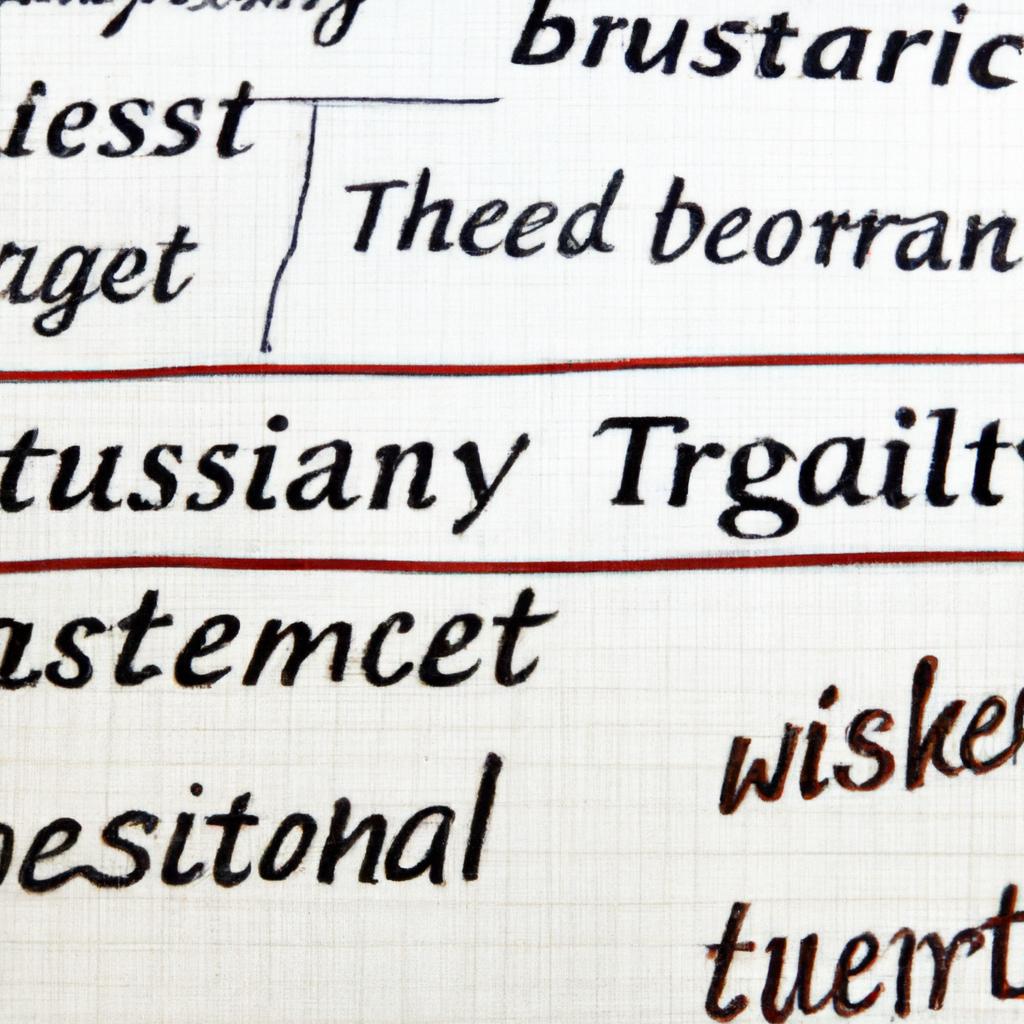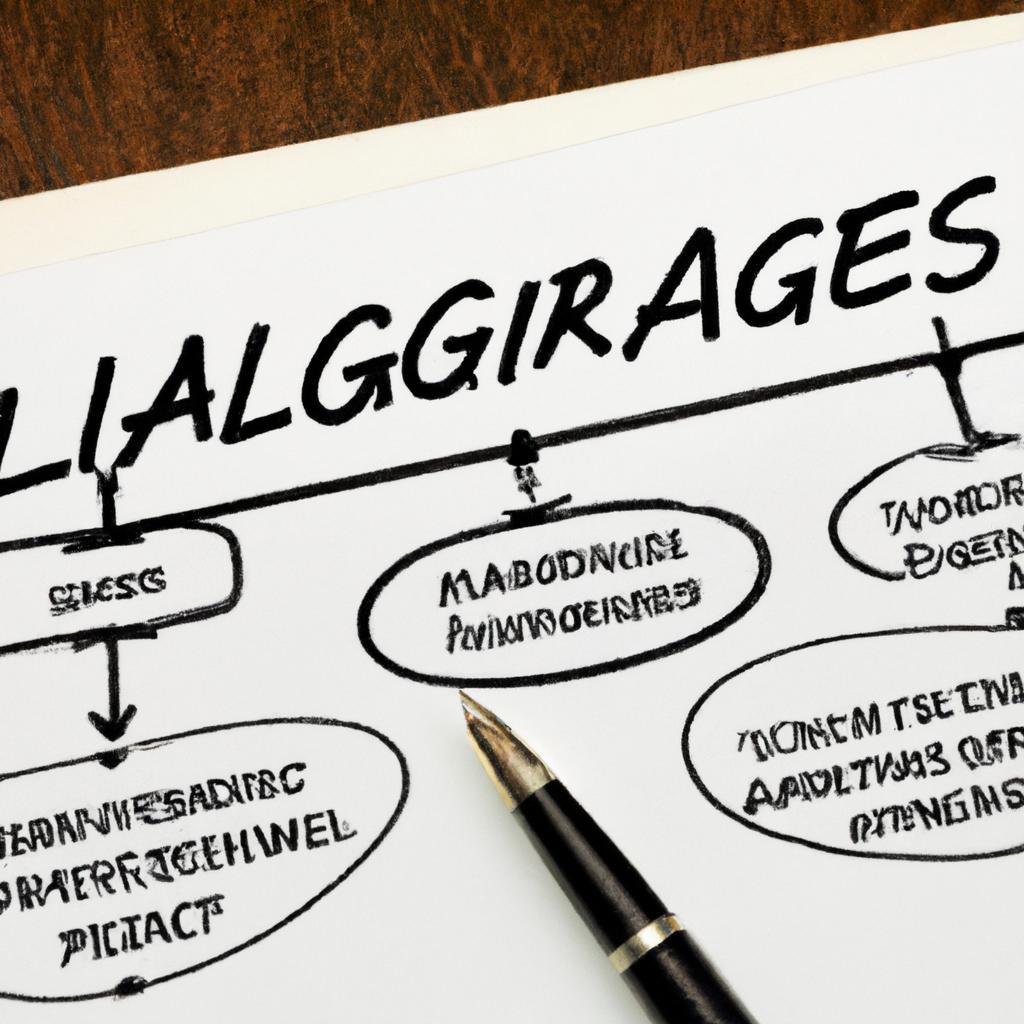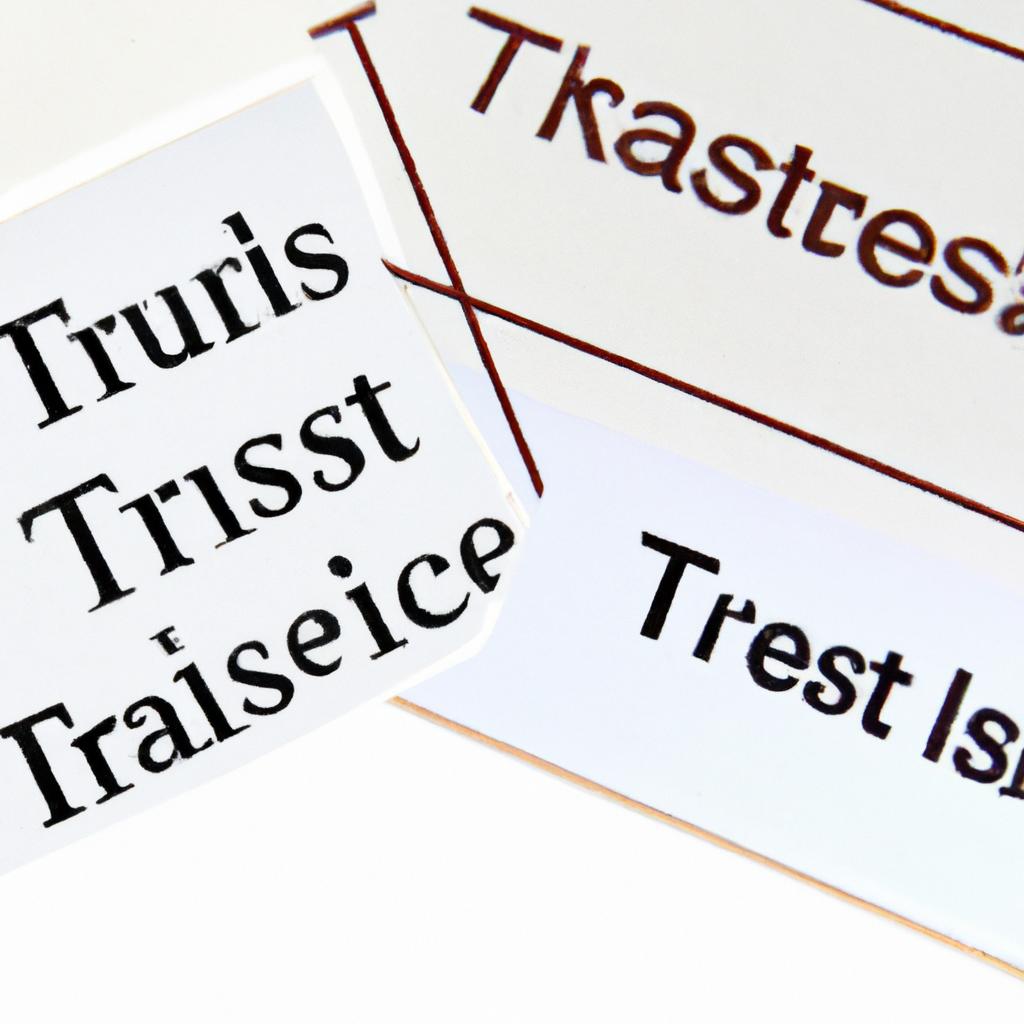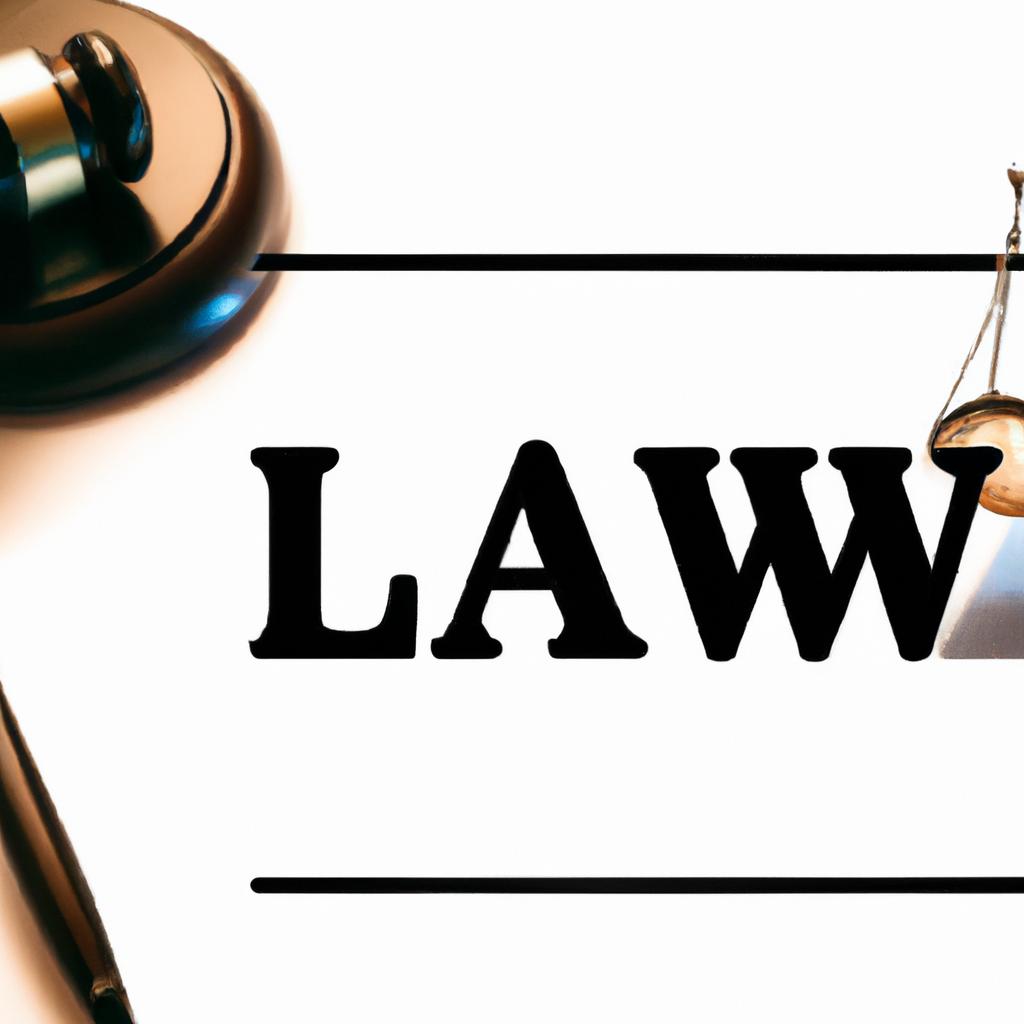As seasoned legal professionals at Morgan Legal Group in New York City, we often encounter clients who are confused about the distinctions between trust and estate planning. While both aim to manage and distribute assets, the nuances between these two essential components of wealth management can be intricate. In this article, we will delve into the key differences between trust and estate planning, providing clarity for those seeking to safeguard their assets and wishes for the future.
Key Distinctions Between Trusts and Estates
When it comes to estates and trusts, it’s essential to understand the key distinctions between the two. While both involve the distribution of assets after someone passes away, there are significant differences in how they are structured and administered. Here are some key points to consider:
- Ownership: In a trust, assets are owned by the trustee who manages them for the benefit of the beneficiaries. In contrast, an estate consists of assets owned by the deceased person.
- Control: Trusts allow for more control over how assets are distributed, as the terms of the trust dictate how and when beneficiaries receive their inheritance. On the other hand, estates are subject to probate court oversight, which can lead to delays and added costs.
| Trust | Estate |
|---|---|
| Assets owned by trustee | Assets owned by deceased individual |
| More control over distribution | Subject to probate court oversight |

Understanding the Legal Structures and Functions
When it comes to of trusts and estates, it’s important to distinguish between the two. While both serve as vehicles for passing on assets to beneficiaries, there are key differences in their formation and administration.
One major difference between a trust and an estate is that a trust is created during the lifetime of the grantor, while an estate is established upon the death of an individual. Additionally, a trust is a legal entity that holds assets on behalf of beneficiaries, while an estate refers to all the assets and liabilities left behind by a deceased person. Trusts are typically managed by a trustee, who has a fiduciary duty to act in the best interests of the beneficiaries, while estates are administered by an executor or administrator appointed by the court.

Factors to Consider When Choosing Between a Trust and an Estate
When deciding between a trust and an estate, there are several important factors to consider to ensure that your assets are protected and passed down according to your wishes. One key factor to consider is privacy. A trust offers confidentiality as it does not go through probate, which is a public process that can expose your assets, debts, and beneficiaries. For those seeking to keep their affairs private, a trust may be the preferable option. On the other hand, an estate is subject to probate, which means that your will becomes a matter of public record.
Another factor to consider is control. With a trust, you have the ability to outline specific instructions for how your assets are managed and distributed, even after you pass away. This can be particularly beneficial if you have complex family dynamics or specific wishes for how your assets are used. Conversely, an estate plan may offer less control as it goes through the probate process, where a court oversees the distribution of assets according to state law. Depending on your individual circumstances, the level of control you desire may help guide your decision between a trust and an estate.
Expert Recommendations for Effective Wealth Transfer Planning
When it comes to effective wealth transfer planning, understanding the key differences between trust and estate is crucial. While both serve as important tools in managing and distributing assets, they each have distinct characteristics that can impact the overall estate plan. Trusts, for example, allow individuals to transfer assets to beneficiaries while avoiding probate and maintaining privacy, whereas estates refer to the total sum of an individual’s assets and liabilities upon their death.
Moreover, trusts provide greater control and flexibility over how assets are distributed, as they can be structured to include specific instructions and conditions for beneficiaries. On the other hand, estates are subject to probate, which can be a lengthy and costly process that exposes assets to public scrutiny. By consulting with experienced estate planning professionals, individuals can determine the most effective strategy for transferring wealth and protecting their legacy for future generations.
Q&A
Q: What is the difference between trust and estate?
A: Trust refers to a legal arrangement where a trustee holds assets on behalf of beneficiaries, while an estate refers to all the property and assets left behind by a deceased individual.
Q: How are trust and estate handled differently in terms of management?
A: Trusts are managed by a trustee according to the terms set out in the trust document, whereas estates are typically managed by an executor or personal representative appointed by the deceased individual’s will or by the court.
Q: What are the primary reasons for setting up a trust versus planning an estate?
A: Trusts are often used for privacy, asset protection, and avoiding probate, while estate planning is crucial for ensuring a smooth transfer of assets upon death and minimizing taxes.
Q: How does the distribution of assets differ between trust and estate?
A: Assets held in a trust are distributed according to the terms of the trust document, while assets in an estate are distributed according to the deceased individual’s will or state laws if there is no will.
Q: How do trust and estate affect taxes and legal implications?
A: Trusts may offer tax benefits and protection from creditors, while estates may be subject to estate taxes and probate fees, depending on the jurisdiction and value of assets. It is important to consult with a legal and financial advisor to understand the implications of both.
The Conclusion
In conclusion, understanding the difference between trust and estate is essential for effective financial and asset planning. While both tools can help manage and distribute wealth after death, they serve different purposes and have distinct features that cater to varying needs and preferences. By grasping the nuances of trust and estate planning, individuals can make informed decisions that will protect their assets and legacy for generations to come. Remember, whether you choose a trust or an estate plan, the key is to proactively safeguard your financial future and ensure your wishes are carried out seamlessly. So, take the time to explore your options, consult with professionals, and craft a tailored strategy that aligns with your goals and values. Here’s to securing a prosperous future for yourself and your loved ones.
 When it comes to planning for the future and managing one’s assets and personal affairs, two terms that may often come up are trust and estate. While they are often used interchangeably, they are actually two distinct concepts with different purposes and implications. Understanding the difference between trust and estate is crucial for individuals who want to ensure their assets are properly managed and distributed according to their wishes. In this article, we will explore the key differences between trust and estate and how they play a role in estate planning.
When it comes to planning for the future and managing one’s assets and personal affairs, two terms that may often come up are trust and estate. While they are often used interchangeably, they are actually two distinct concepts with different purposes and implications. Understanding the difference between trust and estate is crucial for individuals who want to ensure their assets are properly managed and distributed according to their wishes. In this article, we will explore the key differences between trust and estate and how they play a role in estate planning.
Trust and Estate Defined
Before we dive into the differences between trust and estate, let’s first define each term. A trust is a legal document that allows a designated individual or entity, known as the trustee, to hold and manage assets on behalf of another individual or individuals, who are known as beneficiaries. The assets placed in a trust can include money, real estate, stocks, and other valuable possessions. The trustee has a fiduciary responsibility to manage the assets in the trust for the benefit of the beneficiaries.
On the other hand, an estate refers to all of an individual’s assets, including property, investments, and personal belongings. It also includes any debts or liabilities that the individual may have at the time of their death. The estate is managed and distributed according to the individual’s will or state laws if there is no will in place.
Ownership of Assets
One of the main differences between trust and estate is the ownership of the assets. In a trust, the assets are owned by the trust itself, not the beneficiaries. The trust agreement outlines how the assets are to be managed and distributed among the beneficiaries.
In contrast, in an estate, the assets are owned by the individual who created the estate. Upon their death, the assets are transferred to the beneficiaries either through a will or intestate succession laws. This means that the beneficiaries have full ownership and control over the assets in the estate.
Access to Funds
Another important difference between trust and estate is when the beneficiaries have access to the funds. In a trust, the trustee has the discretion to distribute funds to the beneficiaries according to the terms outlined in the trust agreement. The trustee may also have the authority to make investment decisions on behalf of the beneficiaries.
In an estate, the beneficiaries typically have to wait until the will is probated or the estate is settled before they can access their inheritance. This process can take months or even years, depending on the complexity of the estate and any legal challenges that may arise.
Privacy
Privacy is another key difference between trust and estate. Trusts offer a higher degree of privacy as they are not subject to probate and do not become part of the public record. This means that the details of the trust, including the assets contained within it and the beneficiaries, can remain confidential.
On the other hand, estates are subject to probate, which is a court-supervised process of distributing the assets and settling any debts or claims against the estate. This process is open to the public, and the details of the estate become part of the public record.
Avoiding Estate Taxes
One of the main reasons individuals may set up a trust is to reduce their tax liability. With a trust, the assets are owned by the trust instead of the individual, which can result in a lower tax burden. Additionally, certain types of trusts, like irrevocable trusts, can provide tax benefits for wealthy individuals looking to minimize estate taxes.
An estate, on the other hand, is subject to estate taxes, which can be significant for high-value estates. The size of the estate and estate tax laws in the individual’s state of residence will determine the amount of taxes owed.
Benefits of Trust and Estate Planning
While there are clear differences between trust and estate, both play a critical role in estate planning. Some benefits of setting up a trust and planning your estate include:
1. Avoiding probate: As mentioned earlier, trusts do not go through probate, which can save time and money for beneficiaries. This also avoids any potential challenges to the estate by disgruntled family members or other parties.
2. Control over asset distribution: Through a trust or estate plan, individuals can dictate exactly how and when their assets will be distributed to their beneficiaries. This can be particularly helpful for parents who want to provide for their minor children or individuals who have complex family dynamics that they want to manage.
3. Providing for loved ones with special needs: A trust can be set up to provide for loved ones with special needs, ensuring they are taken care of even after the individual’s passing.
4. Maintaining privacy: As previously mentioned, trusts offer a higher degree of privacy, as they do not become part of the public record. This can be appealing for individuals who want to keep the details of their assets and beneficiaries confidential.
In conclusion, while trust and estate are often used interchangeably, they have distinct differences that are important to understand when planning for the future. Trusts offer more control, privacy, and potential tax benefits, while estates are subject to probate and estate taxes. Consult with an estate planning attorney to determine which options are best for your individual situation. Proper planning can provide peace of mind for you and your loved ones, ensuring your assets are managed and distributed according to your wishes.

